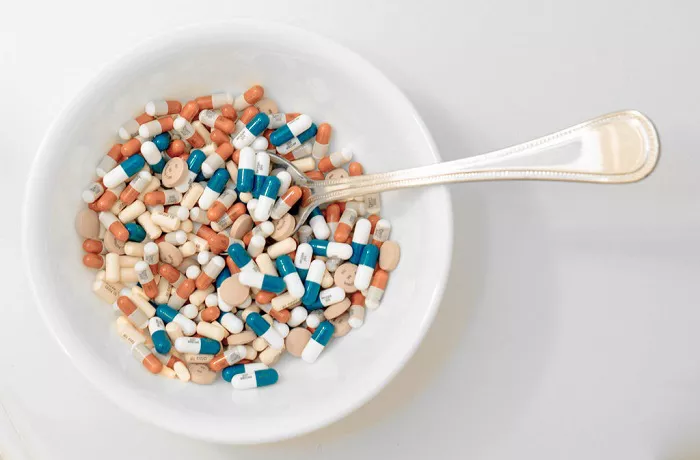Zinc is one of the most talked-about minerals in men’s health, yet many guys still wonder: Should I be taking zinc? Is it safe? How much do I really need? The truth is, zinc plays a crucial role in male physiology—from testosterone production to immune function. But like any supplement, it needs to be used correctly. This in-depth guide cuts through the confusion and gives men science-backed answers on zinc supplementation.
Why Zinc Matters for Men
Zinc isn’t just another mineral—it’s essential for male-specific health needs. Unlike women, men have higher zinc requirements due to:
- Testosterone synthesis: The male body uses zinc to produce and regulate testosterone.
- Prostate health: Zinc concentrates in prostate tissue more than any other organ.
- Sperm quality: Semen contains significant amounts of zinc for reproductive function.
- Muscle recovery: Zinc supports protein synthesis and workout recovery.
The problem? Modern diets often fall short. Processed foods, vegetarian diets, and even excessive sweating can deplete zinc levels. This makes supplementation worth considering for many men.
Proven Benefits of Zinc for Men
Boosts Testosterone Naturally
Multiple studies show zinc deficiency correlates with low testosterone. Supplementing can help, especially in:
- Athletes (who lose zinc through sweat)
- Older men (zinc absorption declines with age)
- Stressed individuals (cortisol depletes zinc)
A 2011 study found men with marginal zinc deficiency who supplemented saw significant testosterone increases.
Enhances Sexual Health
Zinc affects multiple aspects of male sexual function:
- Supports healthy sperm count and motility
- May help with erectile function (by supporting nitric oxide production)
- Maintains prostate health (low zinc links to prostate issues)
Strengthens Immunity
Zinc is crucial for:
- White blood cell function
- Reducing common cold duration
- Wound healing (important for active men)
Supports Mental Health
Emerging research suggests zinc may:
- Help regulate mood (low levels link to depression)
- Improve cognitive function
- Reduce oxidative stress in the brain
How Much Zinc Do Men Need?
The recommended daily allowance (RDA) varies by age:
- 14+ years: 11 mg daily
- Athletes/active men: 15-30 mg may be beneficial
- Therapeutic doses: Up to 40 mg short-term (under supervision)
Key consideration: The upper limit is 40 mg/day long-term to avoid copper deficiency.
Best Zinc Forms for Men
Not all zinc supplements work equally. The most bioavailable forms include:
- Zinc Picolinate: Highly absorbable, gentle on stomach
- Zinc Citrate: Good absorption, affordable
- Zinc Methionine: Well-tolerated, food-based form
Avoid zinc oxide (poor absorption) unless using topically.
Top Food Sources of Zinc
While supplements help, whole foods should come first:
- Oysters (the highest source—50mg per 6 medium)
- Red meat (beef, lamb)
- Pumpkin seeds
- Eggs
- Cashews
Vegetarians need to be especially mindful, as plant zinc is less bioavailable.
When Should Men Supplement with Zinc?
Consider zinc if you:
- Eat mostly processed foods
- Follow a vegetarian/vegan diet
- Experience frequent infections
- Have low testosterone symptoms
- Struggle with acne or slow wound healing
Potential Side Effects and Safety
Zinc is generally safe but can cause:
- Nausea (if taken without food)
- Metallic taste (common with high doses)
- Copper deficiency (with long-term high intake)
Smart practice: Take with food, cycle if using high doses, and consider copper supplementation (2mg copper per 15mg zinc long-term).
Common Zinc Supplement Mistakes
- Taking on empty stomach (causes nausea)
- Overdoing it long-term (disrupts mineral balance)
- Ignoring form quality (oxide vs. picolinate matters)
- Not testing levels (hair mineral analysis can help)
Zinc and Other Nutrients: Key Interactions
Zinc doesn’t work in isolation. It interacts with:
- Copper: High zinc depletes copper over time
- Iron: They compete for absorption
- Vitamin A: Zinc helps utilize vitamin A properly
- Magnesium: These often work together metabolically
Special Considerations for Different Ages
Young Men (18-30)
- Supports acne reduction
- Aids muscle growth
- Boosts fertility
Middle-Aged Men (30-50)
- Helps maintain testosterone
- Supports prostate health
- Aids stress management
Older Men (50+)
- Combats age-related zinc deficiency
- Supports immune function
- May help cognitive health
How to Choose a Quality Zinc Supplement
Look for:
- Third-party testing (NSF, USP verified)
- Proper form (picolinate, citrate)
- Reasonable dosage (15-30mg ideal for most)
- No unnecessary additives
The Verdict: Should Men Take Zinc?
For most men, zinc supplementation offers more benefits than risks—when used properly. The sweet spot:
- Get zinc from food first (oysters, meat, nuts)
- Supplement wisely (15-30mg of quality form)
- Monitor effects (energy, immunity, performance)
- Consider cycling (3 months on, 1 month off)
Zinc won’t replace a healthy lifestyle, but it can be a valuable tool in a man’s health arsenal. By understanding your individual needs and using zinc strategically, you can harness its benefits without the pitfalls.
Conclusion
Zinc is like a spark plug for male health—small but mighty when firing correctly. Don’t underestimate this essential mineral, but don’t overdo it either. Balance is key.
Start by assessing your diet, consider a quality supplement if needed, and experience the difference proper zinc intake can make in your energy, vitality, and overall wellbeing. Your body—and testosterone levels—will thank you.
Related topics:
The 5 best pelvic floor exercises for men
5 Benefits Of Kegel Exercises For Men
Pelvic Health: The Best Exercises for Men


